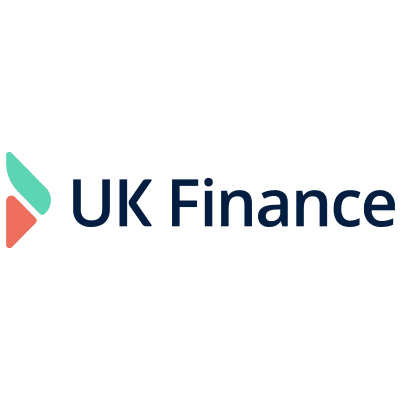Cash flow problems and the stress of chasing unpaid invoices, not exactly how you’d thought running a business would be, is it?
These things combined can put pressure on you and your business. Invoice factoring can help by converting your invoices into immediate working capital. Allowing you to release up to 100% of the cash within as little as 24-48hrs.
Invoice factoring also takes the pressure out of chasing unpaid invoices as the provider will take care of that for you.
By releasing the cash tied up in your unpaid bills you can reduce stress, improve cash flow, and get the money you need to grow your business.
What is invoice factoring?
Invoice factoring allows you to release up to 100% of the cash tied up in your unpaid invoices.
It’s a quick and simple process and a widely used financing option by businesses of all sizes. You submit your unpaid invoices to the provider who will advance you a percentage of the value, usually within 24-48 hrs.
The provider takes charge of the collection process and ensures your customers pay their bills on time. Once the customer settles the invoice the provider will pay you the remaining balance less any fees. It’s simple and hassle free!
How does invoice factoring work?
Everyday business: You keep doing what you’re great at – providing services or selling products to your customers, and invoice them as normal.
‘Sell’ your invoices: You get to choose how much of the money you’re owed you want to release from your sales ledger. Your invoice factoring provider will buy the outstanding debt on those invoices.
Get your cash: In just 24-48 hours, you’ll get up to 100% of the value of your sold invoices directly into your bank account.
Customer pays their invoice: The provider will handle payment collection with invoice factoring, so you don’t need to worry about chasing the payments. The customer pays their invoice straight into the provider’s trust account.
Receive the balance: Once the payment is received, and previously agreed-upon fees and charges are taken by the provider, you’ll receive the remaining balance from your invoice straight into your bank account.
What are the advantages of invoice factoring?
There are many advantages of invoice factoring, here is a breakdown of what you may want to think about when considering this type of invoice finance.
What are the disadvantages of invoice factoring?
What are the different types of invoice factoring?
Recourse Factoring
The money you get from the invoice factoring provider is available for a set amount of time that’s been agreed in advance. This helps make the funding limits more flexible because the company providing the financing isn’t worried about your customers not paying their bills. But here’s the catch: if your customer doesn’t end up paying, you might need to give back some of the money.
This way, you can get the cash you need, but it’s important to be sure your customers will pay their bills.
Non Recourse Factoring
Non-recourse factoring is like having extra security for your money. If your customer has financial trouble and can’t pay, the invoice factoring provider takes on the risk, but only up to a certain limit that you both agree on in advance.
Before they approve any invoices, they carefully check out your customer to make sure they’re reliable. They set a maximum amount they’re willing to cover. Any trading beyond that limit is your responsibility. The good news is, if there’s a bad debt within the agreed limit, the invoice factoring provider takes care of it, not you.
Spot/Selective Factoring
Spot or selective factoring allows you the flexibility to choose which invoices you want to release cash from, rather than committing your entire sales ledger.
CHOCC (Client Handles Own Credit Control)
A hybrid offering of invoice factoring and invoice discounting. A great option if you’re a newer company and don’t yet meet the criteria for invoice discounting. It is also good if your company raises multiple lower value invoices.
Recourse Factoring
The money you get from the invoice factoring provider is available for a set amount of time that’s been agreed in advance. This helps make the funding limits more flexible because the company providing the financing isn’t worried about your customers not paying their bills. But here’s the catch: if your customer doesn’t end up paying, you might need to give back some of the money.
This way, you can get the cash you need, but it’s important to be sure your customers will pay their bills.
Non Recourse Factoring
Non-recourse factoring is like having extra security for your money. If your customer has financial trouble and can’t pay, the invoice factoring provider takes on the risk, but only up to a certain limit that you both agree on in advance.
Before they approve any invoices, they carefully check out your customer to make sure they’re reliable. They set a maximum amount they’re willing to cover. Any trading beyond that limit is your responsibility. The good news is, if there’s a bad debt within the agreed limit, the invoice factoring provider takes care of it, not you.
Spot/Selective Factoring
Spot or selective factoring allows you the flexibility to choose which invoices you want to release cash from, rather than committing your entire sales ledger.
CHOCC (Client Handles Own Credit Control)
A hybrid offering of invoice factoring and invoice discounting. A great option if you’re a newer company and don’t yet meet the criteria for invoice discounting. It is also good if your company raises multiple lower value invoices.
How much does invoice factoring cost?
Fees are specific to each business and will vary on the provider, your annual turnover, and the workload involved. Always ensure that you discuss and understand the terms of your provider’s agreement before committing to using their services.
There are two main fees associated with invoice finance; service fee and discount fee.
Service Fee
This fee is charged for the provider’s services such as sales ledger management. The fee is typically charged as a percentage of your company’s annual turnover.
Discount Fee
This fee is taken by the provider for issuing the cash advance and is calculated as interest on the amount borrowed.
Keep in mind that fees can vary based on factors like your business type, the provider you choose, your annual earnings, and the level of service required. Before committing to a provider, it’s important to have a clear discussion about their terms and make sure you understand the agreement.
While there are fees involved, it’s worth noting that invoice financing can be a powerful tool for enhancing cash flow and enabling the growth of your company. It’s an investment in the smooth operation and expansion of your business.
Invoice Finance Calculator
Invoice Factoring Calculator
Please enter an annual turnover between £50,000 and £40,000,000
30 days
60 days
90 days
120 days
Choose an option
You could release:
£
Estimated monthly cost:
£
BOE Base Rate: 5.25%
Service rate: %
Discount rate: %
Don’t just take our word for it, listen to how our customers rated us excellent on TrustPilot
Who is suitable for invoice factoring?
Invoice factoring is used by over 40,000 UK companies and can be used for invoices of a few hundred pounds to multiple millions. It doesn’t matter whether you’re a small business or a large international corporation, as long as you are a business to business (B2B) company and have payment terms of 14 days plus, invoice factoring can help. Providers will have their own rules, but most will expect you to have a net turnover of over £100,000 and have invoices to prove completed work or services.
Invoice factoring is used to support a wide variety of industries such as:
What is an invoice factoring broker?
An invoice factoring broker connects businesses with suitable invoice factoring providers.
Touch Financial is the UK’s leading invoice finance broker. When you work with an expert finance broker like us, you get access to expert advice without any cost to you before making a commitment to a specific provider.
We’ve carefully hand picked a selection of over 25 of the UK’s top invoice factoring companies. After a conversation with our expert consultants, we’ll aim to connect your business with up to three factoring providers. This way, you can have individual discussions with each one to understand how they operate and get a clear picture of their service costs.
We take several things into account when considering the right provider for you:
- The size, industry, location, and trading history of your business
- The size, industry, location, and trading history of your customers
- The type of work you do, and;
- The size and frequency of your invoices.
You’re not obliged to move forward with our services in any way. At the very least, you’ll leave the process with a better understanding of the available products and an idea of the potential cost involved in entering into a factoring arrangement.






